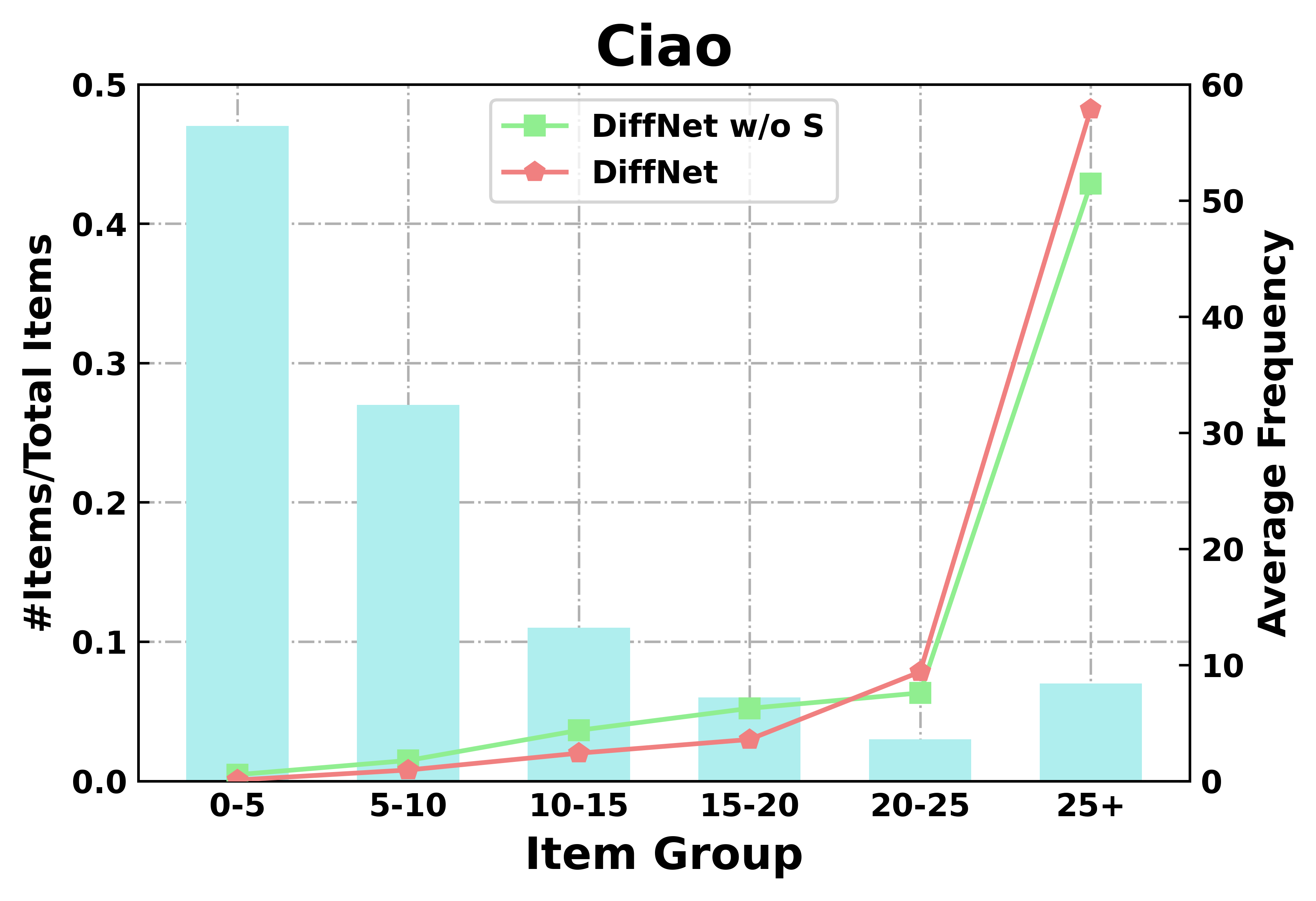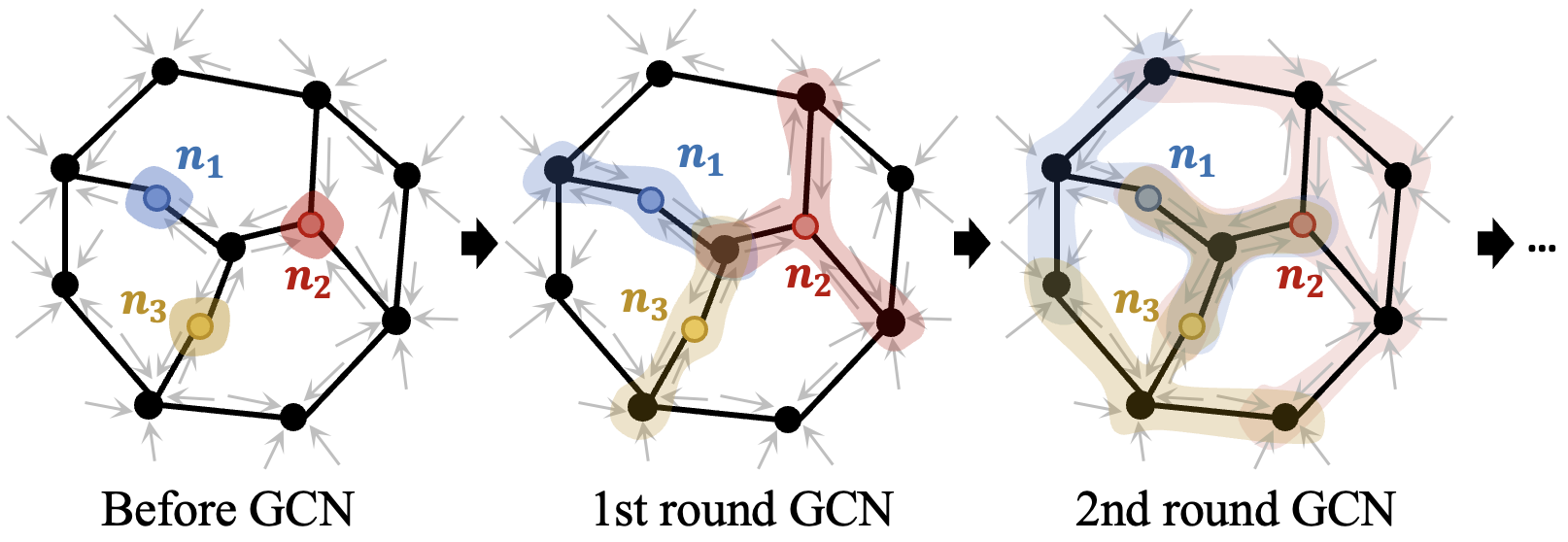Balancing User Preferences by Social Networks: A Condition-Guided Social Recommendation Model for Mitigating Popularity Bias

0

Sign in to get full access
Overview
- This paper proposes a novel "Condition-Guided Social Recommendation Model" (CaDeRec) to mitigate the popularity bias in recommendation systems.
- CaDeRec leverages social network information and a conditional diffusion model to balance user preferences and overcome the tendency of recommendation systems to focus on popular items.
- The researchers conducted experiments on real-world datasets to demonstrate the effectiveness of CaDeRec in improving recommendation performance and reducing popularity bias compared to state-of-the-art baselines.
Plain English Explanation
Recommendation systems are algorithms that suggest products, content, or information to users based on their preferences and behaviors. However, these systems can often suffer from "popularity bias," where they tend to recommend the most popular items rather than a diverse range of content that caters to individual user interests.
The researchers behind this paper recognized this problem and developed a new recommendation model called CaDeRec to address it. CaDeRec uses information from users' social networks, such as their connections and interactions with others, to better understand their preferences and desires. It then employs a "conditional diffusion model," which is a type of machine learning algorithm, to generate recommendations that balance the user's individual tastes with the broader interests of their social circle.
By incorporating this social network data and using the conditional diffusion model, CaDeRec is able to overcome the popularity bias and provide users with more personalized and diverse recommendations. The researchers tested their model on real-world datasets and found that it outperformed other state-of-the-art recommendation systems in terms of recommendation quality and reduced popularity bias.
This research is significant because it demonstrates a novel approach to improving recommendation systems and making them more responsive to individual user preferences. By leveraging social network information and advanced machine learning techniques, the CaDeRec model offers a promising solution to the longstanding challenge of popularity bias in recommendation systems.
Technical Explanation
The researchers proposed the "Condition-Guided Social Recommendation Model" (CaDeRec) to address the popularity bias in recommendation systems. CaDeRec integrates social network information and a conditional diffusion model to balance user preferences and generate more personalized recommendations.
The key elements of the CaDeRec model include:
-
Social Network Integration: CaDeRec utilizes the user's social network data, such as their connections and interactions with others, to better understand their preferences and interests.
-
Conditional Diffusion Model: The researchers employed a conditional diffusion model, a type of generative machine learning algorithm, to generate recommendations that balance the user's individual tastes with the broader interests of their social circle.
-
Popularity Bias Mitigation: By incorporating social network information and the conditional diffusion model, CaDeRec is able to overcome the tendency of recommendation systems to focus on the most popular items and instead provide users with more diverse and personalized recommendations.
The researchers conducted experiments on real-world datasets, including Cadrec, Dual-Domain, and Effect datasets, to evaluate the performance of CaDeRec. The results demonstrate that CaDeRec outperforms state-of-the-art recommendation models, such as Collaborative Filtering and Mixed Supervised Graph Contrastive Learning, in terms of recommendation quality and reduced popularity bias.
Critical Analysis
The researchers have put forth a compelling approach to mitigating the popularity bias in recommendation systems. The integration of social network information and the use of a conditional diffusion model are novel and promising strategies. However, there are a few potential limitations and areas for further research:
-
Data Availability: The effectiveness of CaDeRec relies on the availability of comprehensive social network data for users. In some scenarios, this information may be limited or difficult to obtain, which could impact the model's performance.
-
Interpretability: While the conditional diffusion model provides a powerful mechanism for generating personalized recommendations, its inner workings may be less interpretable than some traditional recommendation algorithms. Increased transparency could help users understand the reasoning behind the recommendations.
-
Cold-Start Problem: The paper does not explicitly address the cold-start problem, where new users or items with limited data pose a challenge for recommendation systems. Exploring ways to mitigate this issue could further enhance the practical applicability of CaDeRec.
-
Ethical Considerations: As with any recommendation system, there are potential ethical concerns around privacy, algorithmic bias, and the influence of social networks on user behavior. The researchers should consider these aspects more deeply in future work.
Overall, the CaDeRec model represents a significant step forward in addressing the popularity bias in recommendation systems. By leveraging social network information and advanced machine learning techniques, the researchers have developed a promising approach that merits further exploration and refinement.
Conclusion
The "Condition-Guided Social Recommendation Model" (CaDeRec) proposed in this paper offers a novel solution to the problem of popularity bias in recommendation systems. By integrating social network data and employing a conditional diffusion model, CaDeRec is able to generate personalized recommendations that balance individual user preferences with the broader interests of their social circle.
The experimental results demonstrate the effectiveness of CaDeRec in improving recommendation performance and reducing popularity bias compared to state-of-the-art baselines. This research represents a significant advancement in the field of recommendation systems, as it provides a systematic approach to overcoming the longstanding challenge of popularity bias.
While the paper highlights some potential limitations and areas for further research, the core ideas and techniques presented in CaDeRec offer a promising pathway for developing more user-centric and socially-aware recommendation systems. As technology continues to shape our digital experiences, research like this will be crucial in ensuring that recommendation systems serve the diverse needs and interests of individuals rather than just the most popular trends.
This summary was produced with help from an AI and may contain inaccuracies - check out the links to read the original source documents!
Related Papers


0
Balancing User Preferences by Social Networks: A Condition-Guided Social Recommendation Model for Mitigating Popularity Bias
Xin He, Wenqi Fan, Ruobing Wang, Yili Wang, Ying Wang, Shirui Pan, Xin Wang
Social recommendation models weave social interactions into their design to provide uniquely personalized recommendation results for users. However, social networks not only amplify the popularity bias in recommendation models, resulting in more frequent recommendation of hot items and fewer long-tail items, but also include a substantial amount of redundant information that is essentially meaningless for the model's performance. Existing social recommendation models fail to address the issues of popularity bias and the redundancy of social information, as they directly characterize social influence across the entire social network without making targeted adjustments. In this paper, we propose a Condition-Guided Social Recommendation Model (named CGSoRec) to mitigate the model's popularity bias by denoising the social network and adjusting the weights of user's social preferences. More specifically, CGSoRec first includes a Condition-Guided Social Denoising Model (CSD) to remove redundant social relations in the social network for capturing users' social preferences with items more precisely. Then, CGSoRec calculates users' social preferences based on denoised social network and adjusts the weights in users' social preferences to make them can counteract the popularity bias present in the recommendation model. At last, CGSoRec includes a Condition-Guided Diffusion Recommendation Model (CGD) to introduce the adjusted social preferences as conditions to control the recommendation results for a debiased direction. Comprehensive experiments on three real-world datasets demonstrate the effectiveness of our proposed method. The code is in: https://github.com/hexin5515/CGSoRec.
Read more5/28/2024


0
CaDRec: Contextualized and Debiased Recommender Model
Xinfeng Wang, Fumiyo Fukumoto, Jin Cui, Yoshimi Suzuki, Jiyi Li, Dongjin Yu
Recommender models aimed at mining users' behavioral patterns have raised great attention as one of the essential applications in daily life. Recent work on graph neural networks (GNNs) or debiasing methods has attained remarkable gains. However, they still suffer from (1) over-smoothing node embeddings caused by recursive convolutions with GNNs, and (2) the skewed distribution of interactions due to popularity and user-individual biases. This paper proposes a contextualized and debiased recommender model (CaDRec). To overcome the over-smoothing issue, we explore a novel hypergraph convolution operator that can select effective neighbors during convolution by introducing both structural context and sequential context. To tackle the skewed distribution, we propose two strategies for disentangling interactions: (1) modeling individual biases to learn unbiased item embeddings, and (2) incorporating item popularity with positional encoding. Moreover, we mathematically show that the imbalance of the gradients to update item embeddings exacerbates the popularity bias, thus adopting regularization and weighting schemes as solutions. Extensive experiments on four datasets demonstrate the superiority of the CaDRec against state-of-the-art (SOTA) methods. Our source code and data are released at https://github.com/WangXFng/CaDRec.
Read more9/5/2024


0
RecDiff: Diffusion Model for Social Recommendation
Zongwei Li, Lianghao Xia, Chao Huang
Social recommendation has emerged as a powerful approach to enhance personalized recommendations by leveraging the social connections among users, such as following and friend relations observed in online social platforms. The fundamental assumption of social recommendation is that socially-connected users exhibit homophily in their preference patterns. This means that users connected by social ties tend to have similar tastes in user-item activities, such as rating and purchasing. However, this assumption is not always valid due to the presence of irrelevant and false social ties, which can contaminate user embeddings and adversely affect recommendation accuracy. To address this challenge, we propose a novel diffusion-based social denoising framework for recommendation (RecDiff). Our approach utilizes a simple yet effective hidden-space diffusion paradigm to alleivate the noisy effect in the compressed and dense representation space. By performing multi-step noise diffusion and removal, RecDiff possesses a robust ability to identify and eliminate noise from the encoded user representations, even when the noise levels vary. The diffusion module is optimized in a downstream task-aware manner, thereby maximizing its ability to enhance the recommendation process. We conducted extensive experiments to evaluate the efficacy of our framework, and the results demonstrate its superiority in terms of recommendation accuracy, training efficiency, and denoising effectiveness. The source code for the model implementation is publicly available at: https://github.com/HKUDS/RecDiff.
Read more6/5/2024


0
Bias Reduction in Social Networks through Agent-Based Simulations
Nathan Bartley, Keith Burghardt, Kristina Lerman
Online social networks use recommender systems to suggest relevant information to their users in the form of personalized timelines. Studying how these systems expose people to information at scale is difficult to do as one cannot assume each user is subject to the same timeline condition and building appropriate evaluation infrastructure is costly. We show that a simple agent-based model where users have fixed preferences affords us the ability to compare different recommender systems (and thus different personalized timelines) in their ability to skew users' perception of their network. Importantly, we show that a simple greedy algorithm that constructs a feed based on network properties reduces such perception biases comparable to a random feed. This underscores the influence network structure has in determining the effectiveness of recommender systems in the social network context and offers a tool for mitigating perception biases through algorithmic feed construction.
Read more9/26/2024